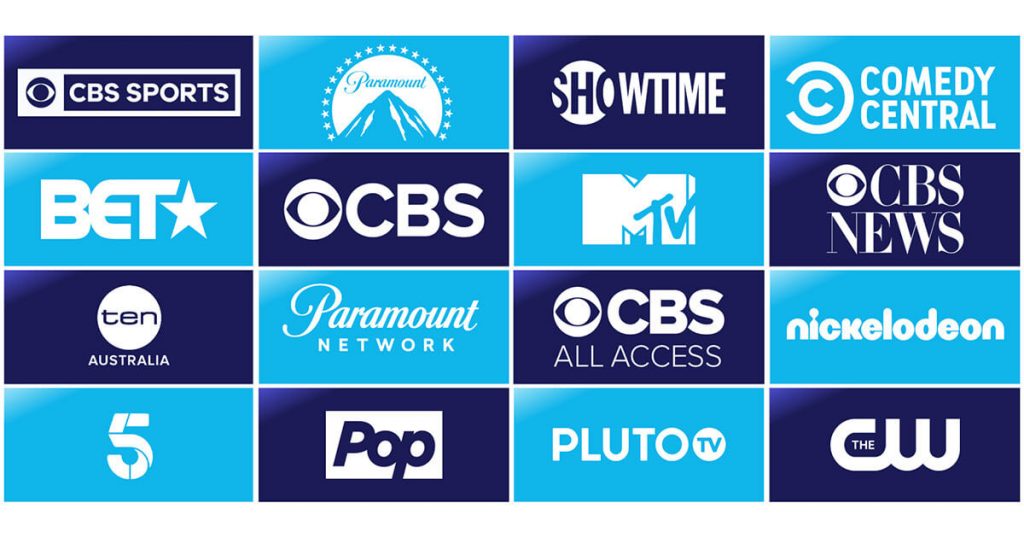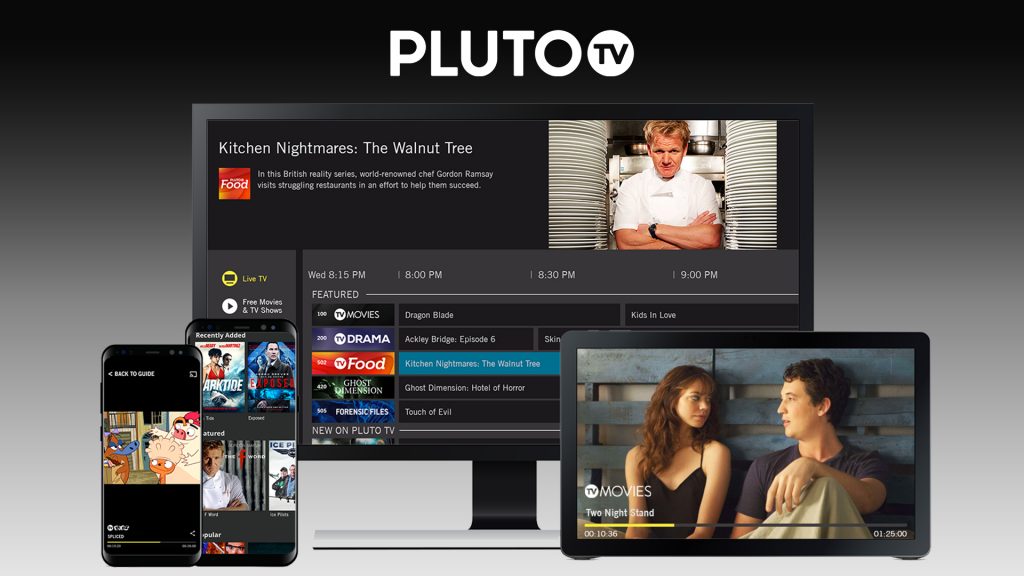
After more than 40 years of operation, DTVE is closing its doors and our website will no longer be updated daily. Thank you for all of your support.
A house of brands or a house of cards – assessing ViacomCBS’s streaming strategy
 Last week, ViacomCBS CEO Bob Bakish shed further light on the broadcaster’s previously announced international ‘House of Brands’ by promising that it will launch a large scale premium streaming service within the year.
Last week, ViacomCBS CEO Bob Bakish shed further light on the broadcaster’s previously announced international ‘House of Brands’ by promising that it will launch a large scale premium streaming service within the year.
Speaking on the company’s quarterly earnings call, the CEO said: “In addition to our domestic strategy, I should add that internationally, we will launch a broad pay streaming product in multiple markets over the next 12 months. This service will harness the full power of the ViacomCBS portfolio, creating a meaningful brand presence in streaming video in key markets around the world.”
Bakish would go on to say that ViacomCBS is aware of “a real international opportunity” to leverage its combined asset base, though neglected to provide any real detail.
From an initial outline, it would appear that ViacomCBS will look to emulate Disney+ which is, in a way, the iconic company’s own ‘house of brands’, combining Disney, Pixar, Marvel, Star Wars and National Geographic. Disney+ also does not rely on third party content, and is a juggernaut of almost 100 years of content owned by Disney – either that which it has created or acquired.
This is a strategy which has clearly paid off, with the streamer already having over 54 million subscribers and its data usage of seven exabytes per month already accounting for 2-2.2% of all mobile video traffic in North America and Europe.
Max Signorelli, research analyst, media and entertainment at Omdia, notes that Disney’s success has come “due to a combination of competitive pricing globally, building their brand on existing video platforms and partnerships with major traditional operators,” and that “all direct to consumer services will follow a similar pattern if they want to replicate Disney’s scale.”
With the streaming space becoming increasingly congested, operators know that relying on third parties is an increasingly risky strategy. Netflix, for example in the US, has lost one of its most-watched shows in the form of Friends to AT&T’s soon-to-launch HBO Max, while it will also lose another massively popular series – The Office – to NBCUniversal’s Peacock.
Netflix is, of course, aware of this. Ever since it launched its first big budget original House of Cards in 2013, the company has marketed itself almost entirely on its in-house content. Shows and movies like Stranger Things and Bright have proved to be hits with audiences, but those familiar titles are what people come back to time and again.
This is why those shows, despite not being current, are valued so highly. Netflix spent US$100 million to extend Friends’s stay on the platform for another year in late 2018 while it more recently paid a reported US$500 million for the exclusive streaming rights to Seinfeld.
Saying that reclaiming these properties is a surefire success is an oversimplification however.
Looking to AT&T and HBO Max, the company announced in January that it would miss out on US$1.2 billion in licensing money by keeping properties like Big Bang Theory to itself. (It’s worth noting that this does not include HBO shows like Game of Thrones and Barry which AT&T already exclusively streams through HBO Now and HBO Go.)
While it makes plenty of money by licensing properties from networks like Nickelodeon, BET, MTV, Comedy Central and Paramount Pictures, it would be hard to argue that many of them are as iconic as characters like Mickey Mouse, Buzz Lightyear, Captain America or Luke Skywalker.
In hindsight, Disney+ was an expensive experiment but the level of risk was minimal given then-CEO Bob Iger’s track record of market leadership and reacting to market trends. Bob Bakish too is a well-respected industry figure, but one must deal with the cards they’re dealt and ViacomCBS’s hand is decidedly less stacked than that of Disney – both in terms of content and financial standings.
The long-awaited merger between Viacom and CBS has seemingly been destructive for both party’s respective values. When it was announced in August 2019, Viacom and CBS were worth a combined US$30 billion. Less than a year later, ViacomCBS has a market cap of US$10.7 billion. Of course, the entire industry has taken a nosedive amid the ongoing coronavirus pandemic but it is still not a pretty sight for investors.
AVODs and SVODs
It would be one thing for Bakish to declare the company’s intentions to launch a large scale streamer on its own to join the marketplace’s titans, but the company already has a number of moderately- to highly-successful streaming services which are already well established in the market.
 Chief among these are ad-supported streamer Pluto TV which the then-Viacom acquired for US$340 million at the turn of 2019 (a figure which seems like pocket change when compared to Fox’s purchase of Tubi for US$440 million announced in March and even bigger amounts being touted around as established broadcasters look to buy into the AVOD space) CBS All Access – which Bakish said the studio is looking to “rebrand and relaunch” later this year – and Showtime.
Chief among these are ad-supported streamer Pluto TV which the then-Viacom acquired for US$340 million at the turn of 2019 (a figure which seems like pocket change when compared to Fox’s purchase of Tubi for US$440 million announced in March and even bigger amounts being touted around as established broadcasters look to buy into the AVOD space) CBS All Access – which Bakish said the studio is looking to “rebrand and relaunch” later this year – and Showtime.
On top of this, ViacomCBS operates a number of more targeted streaming services like BET+ which it seemingly wants to simultaneously serve as niche offerings while incorporating them into a larger product. This is a detail that will likely be ironed out in time with subsequent announcements from Bakish, but a clear path to streaming success is not clear.
Tony Maroulis, principle analyst at Ampere, believes that further developing these niche services will serve ViacomCBS better rather than an overarching streamer given the size of the broadcaster’s library. “It might be possible to put all the content ViacomCBS owns under a single service, but if the subscription fee ends up being three times higher than its competitors, ViacomCBS might price itself out of the market. Given the variety of content that ViacomCBS owns, providing a few thematic-focused services might be the best option, with a discount provided if a customer subscribes to all services, similar to what Disney has done with Hulu, Disney+ and ESPN+.”
The analyst adds that ViacomCBS already has two “relatively successful smaller services in the US” and that it will “likely build on the experience it has gained from those services”. However, he says that given the “long-standing commitments with pay TV partners for its content rights,” It is “unlikely that the ideal ViacomCBS service will launch in 2020.”
Pluto TV meanwhile will continue to exist as a separate entity and go from strength to strength (the most recent tally has it at a domestic monthly active user base of more than 24 million), but there are already several alarming factors which ViacomCBS must address if it is to convince the market – and potential users – of its viability as a platform holder.
Late to the party
On top of a strategy that seemingly pits ViacomCBS up against itself, there is the distinct possibility that it may already be too late.
In a Medium post published at the beginning of March, Richard Yao, manager of strategy and content at IPG Media Lab, argued that it might already be too little too late for ViacomCBS to seriously compete on a large scale. He wrote: “This is a somewhat understandable stance, given that at about five million subscribers, CBS All Access currently lacks the kind of substantial user base for the company to properly monetise its most valuable content. Plus, compared to its competitors, ViacomCBS, and its parent company, National Amusement Inc., lack the kind of non-media assets that they could leverage to build a super bundle like the way Disney or Amazon can.”
Maroulis at Ampere isn’t so quick to judge: “The early success of Disney+ is evidence that a service with compelling content, an affordable pricepoint and the right partners has the potential to carve out a piece of the growing SVoD pie. However, there is also a case for capitalising on the increased competition for content from the multiple new OTT video services as established services like Netflix or Amazon are unable to license content from the largest studios.
Certainly in the US with the market already crowded and set to become even busier with the launches of HBO Max and Peacock before the end of the summer, a place does not seem immediately obvious for a major ViacomCBS streaming service.
With all of this speculation set to continue in the coming months, ViacomCBS will look to convince sceptics that it is indeed a legitimate player and that it has what it takes to thrive with its ‘house of brands.’



